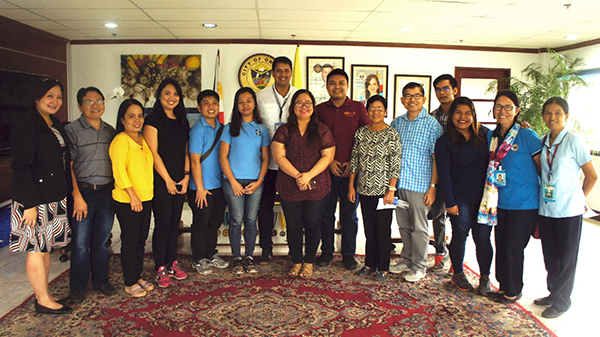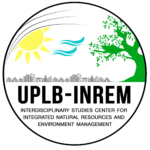
ORMOC CITY, LEYTE—The Interdisciplinary Studies Center for Integrated Natural Resources and Environment Management (INREM) team of UPLB soft-launched the project “Action-ready climate knowledge to improve disaster risk management for smallholder farmers in the Philippines” in Leyte on Aug. 14-16.
The INREM team oriented local government officials, including Mayor Richard Gomez of Ormoc City and members of the Sangguniang Bayan of Merida town, about the project and held a series of focus group discussions with farmers in these places. The team also discussed future activities with Dr. Remberto A. Patindol, vice president of the Visayas State University (VSU), its partner university.
The project promotes the use of reliable and timely information in making agricultural production climate change-resilient. It aims to improve the exchange of information between the Philippine Atmospheric Geophysical and Astronomical Services Administration (PAGASA) and key decision makers such as farmers, in managing climate and weather risks. The project assesses the critical decisions at the farm level and the climate information needs to help farmers develop well-informed plans.
To achieve these goals, the project will develop outcome- and probability-based decision trees based on economic analysis. Recommendations on localizing weather and climate forecast, models of downloading information at the farmer’s level, and risk management recommendations will also be derived from the project.

These knowledge products are intended to guide both the farmers and the LGUs. At the farmers’ level, their use would lead to optimal decision making in farm operations. These products are also expected to help LGUs craft better response mechanisms to extreme weather events and well-informed land use plans. The project also aims to recommend national policy options on disaster risk management.
The project, funded by the Australian Centre for International Agricultural Research (ACIAR) and co-implemented by the Philippine Institute of Development Studies (PIDS), PAGASA, and the Department of Agriculture-Agricultural Training Institute-Region 8 (DA-ATI-8), is being implemented in Benguet, Oriental Mindoro, and Leyte provinces.

The project has also engaged other state universities and colleges in the project sites—Benguet State University and Mindoro State College of Agriculture and Technology—and has been closely working with the farmer associations and LGUs at the provincial and municipal levels.
The project is led by Dr. Juan M. Pulhin, chair of INREM and project leader, and Dr. Canesio D. Predo, co-project leader. (Mia Barbara Aranas)
